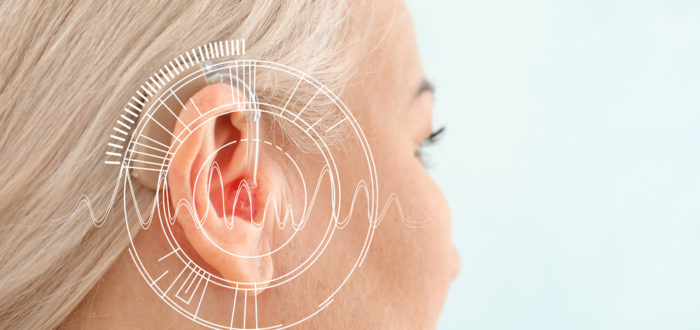If you wear hearing aids, they’ve probably become an important part of your day-to-day life. When you rely on your hearing aids to help you through your day, it can be frustrating when they are not working as normal.
Sometimes you may experience your hearing aids making a buzzing sound. Not only can this be annoying, it may even be uncomfortable. If the buzzing persists for a prolonged time, it could even cause you pain!
Today, we’re exploring what could be making your hearing aid buzz. We’ll look at common problems, and what you can do to troubleshoot them.
Troubleshooting Your Hearing Aid(s)
If your hearing aid is buzzing, the first thing you should check is your batteries. If the batteries are in good shape with no visible damage, it’s likely that the buzzing you’re hearing is feedback from your hearing aids.
4 Reasons Your Hearing Aid is Buzzing
The Volume Is Too High
It’s only natural that you’re going to want to adjust the volume on your hearing aids. In loud social settings, you may be tempted to increase the volume on your device. However, setting it too high can cause feedback.
Before adjusting your volume, ask yourself how often you’re actually having to make these adjustments? When was the last time that you had a hearing assessment? Is it possible that your hearing has actually changed? If it’s been over a year since your last hearing assessment, we recommend booking one in.
Request an appointment with the hearing healthcare specialists at Hearing, Balance & Speech Center by clicking here. We’d be happy to review your baseline hearing and ensure your hearing aids are at the correct setting for you.
Your Hearing Aid Was Touched or Bumped
If you’ve heard a quick burst of feedback, the most common cause is something coming in contact with your hearing aid. If you’ve just given someone a hug, they may have bumped your ear.
Occasionally, wearing something on your head such as a hat or headgear can obstruct sound waves. If you are wearing something on your head and experiencing feedback, try removing the item and see if it resolves the issue.
Your Ears Are Dirty
Earwax is an important part of a healthy ear. It serves to protect the skin in your ear canal, helps to clean your ear, and protects against bacteria, water and foreign objects.
Although earwax is a good thing, too much of it is not! Excess ear wax can stop sounds from getting to your hearing aids. In some cases, the ear wax will force the sounds back out, or even trap the sound. This can cause your hearing aids to make whistling or buzzing sounds.
You can see if earwax is an issue by removing your hearing aids and checking to see if there is any wax buildup. If you need some tips on cleaning your hearing aid, our team would be happy to help!
Your Hearing Aids Do Not Fit
Hearing aids should comfortably fit your ear. When your hearing aids don’t fit correctly, the sounds can bounce around your ear and cause feedback. In some cases, poor fit is the result of incorrectly inserting your hearing aids. Check your hearing aids are not too loose by removing your hearing aids and reinserting them. Make sure they’re seated snugly in your ear.
If you’ve ruled out placement as causing the issue, there are other reasons that your hearing aids no longer fit. Weight loss or gain can actually impact the fit of your devices. You may have also inadvertently damaged your device.
Have a Question? Want to Get Your Hearing Checked? Contact Us Today!
At Hearing, Balance & Speech Center, our hearing care professionals would be happy to give you a hearing assessment. Give us a call on 203-774-5642 to arrange an appointment, or click here to request one online.

